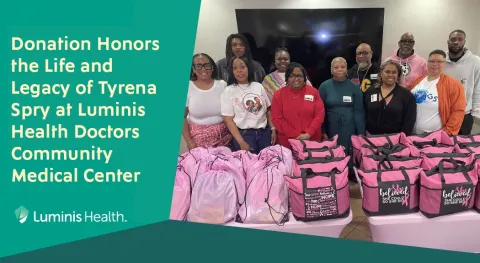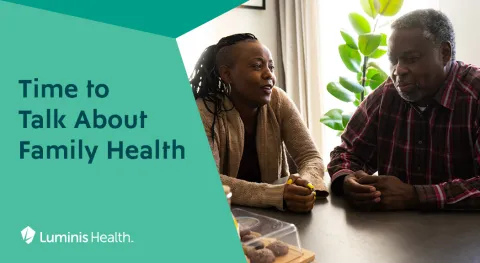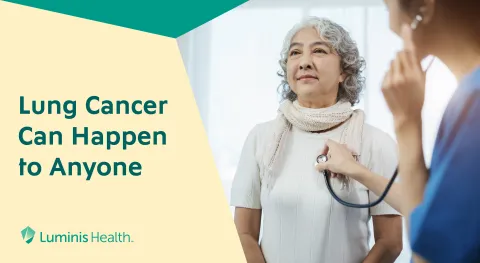Effective January 20, 2026, masks are encouraged for all staff, patients and visitors at all Luminis Health locations and will remain encouraged through the end of the influenza season. Thank you for your patience as we continue to care for our community.

Women diagnosed with breast cancer can face many different choices for treatment. With new advancements in technology and breast cancer therapies, it can be difficult to know what choices give the best chance for a cure and high quality of life. A lumpectomy or mastectomy? Chemo before surgery or after surgery? How will these decisions affect personal, family and career priorities?
Oftentimes, there is no right or wrong answer. Each woman is at a different stage in life and every woman’s breasts mean something different to her. Although breast surgeons aim to educate and guide patients, patients must ultimately make the decisions about treatment. This model is known as “shared decision making.”
For some women, identifying a personal “best” treatment may involve the support of a friend or mentor — such as volunteer with a peer-to-peer mentorship program, like Survivors Offering Support (SOS). Hospitals across the nation offer programs like SOS, which pair a newly diagnosed breast cancer patient with a breast cancer survivor to offer educated support and encouragement. SOS peer mentors don’t offer medical advice, but as breast cancer survivors themselves, they can relate to the worries and fears that women with breast cancer often experience.
Here are just a few of the benefits that women with breast cancer can find from peer-to-peer mentorship programs:
- Support from friends or family members who survived breast cancer can be comforting, but unlike peer mentors, these people aren’t trained to remain objective. They mean well, but they don’t understand that their story is just that – their story. A woman needs to focus on her story, which peer mentors understand.
- Peer mentors can also help women who have recently been diagnosed with breast cancer cut through information overload, which can result from researching online for hours. Mentors can help other women turn their concerns into questions for their surgeon. These conversations empower women to make informed decisions.
- Knowing that she has made her decision with the support of a trusted SOS mentor can help a woman minimize second-guessing herself, which means one less thing to worry about.
- Connecting with a mentor makes the cancer journey less lonely. Even if women have a strong social support system, it makes a huge difference to have someone who has been through the breast cancer journey themselves. Confiding in a mentor helps cut through the loneliness that can occur during the breast cancer journey. In fact, many women form lifelong friendships through these types of programs.
-
Going through breast cancer can be both physically and emotionally taxing. To get through rough times, women can lean on the support of their mentor. Getting to know someone who has come through a breast cancer battle on the other side can give inspiration and motivation for women in their fight against cancer. No one has to go through something like this alone.
Read more about Survivors Offering Support (SOS), including the personal story of a volunteer who discovered storm chasing in her recovery from a rare form of breast cancer.
 Lorraine Tafra, MD, is a breast surgeon and the medical director of AAMC’s Rebecca Fortney Breast Center.
Lorraine Tafra, MD, is a breast surgeon and the medical director of AAMC’s Rebecca Fortney Breast Center.



